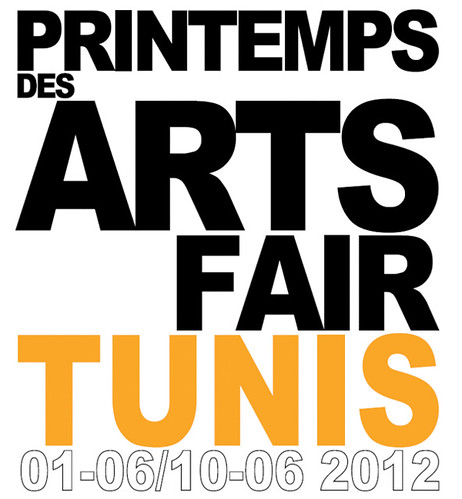27 Jun 2012 | Americas, Index Index, minipost
Ecuadoran President Rafael Correa has personally attacked Gustavo Cortez, editor of the leading daily newspaper El Universo. During a TV broadcast on Saturday the President accused the newspaper editor of being “wicked” and “of having bad faith.” Whilst showing a photograph of the editor, Correa called on the people of Ecuador to remember Cortez as a “clear example of the bad press in the country.”
27 Jun 2012 | Index Index, Middle East and North Africa, minipost
The headquarters of a leading Lebanese TV station Al-Jadeed were attacked by armed men earlier this week. Five masked gunmen opened fire on the building in Beirut at 9.30pm on 25 June, and set fire to tires in the station entrance. The attack followed the airing of a controversial interview with Sheikh Ahmad Al-Assir, a Salafist Imam, who harshly criticised the Shiite Muslim leaders in the country. Al-Jadeed were forced to apologise for the interview, and any anger it had unintentionally provoked.
25 Jun 2012 | Middle East and North Africa
PRESS RELEASE
The International Freedom of Expression Exchange Tunisia Monitoring Group (IFEX-TMG), a coalition of 21 IFEX members [including Index on Censorship], is alarmed by the recent attacks in Tunisia on freedom of expression, in particular against artistic expression, in the name of religion.
On 10 June 2012, three ultra-conservative Islamists (reportedly two men and a woman), who were accompanied by a bailiff and a lawyer, toured the Palais El-Abdellia, an art gallery in Tunis, taking part in the Printemps des Arts modern contemporary art fair. The group demanded that the organisers take down two artworks which they claimed were offensive to Islam.
When their request was denied, the Islamists returned later that night with a large number of supporters and broke into the exhibition from the rear walls, burned the painting of Faten Gaddass, and tore to pieces two linen artworks, one by Mohamed Ben Slama, and the second by a French artist.
On 12 June, the Tunisian Ministry of Culture decided to temporarily close the gallery, after violent reactions in several Tunisian cities, including the capital Tunis. Ennahda ruling party claimed that some of the artworks were provocative and that they violated the “principles of Islam and the holy beliefs of Tunisian people.”
Furthermore, the Tunisian Minister of Culture, Mehdi Mabrouk, declared that some of the artworks exhibited at Printemps des Arts do in fact violate Islamic holy symbols, which the artists deny. He has also said that some of these artworks are now under investigation. After acknowledging the provocative role of art, on the morning of 14 June, Mabrouk told Radio Shems FM that six works deemed to be “provocative” had been confiscated.
At a press conference held on 12 June, the Minister announced that the government would likely present a bill to the National Constituent Assembly which would allow criminal charges to be brought against anyone who offends “the sacred.” Blasphemy laws are a clear violation of freedom of expression and would present a serious setback to human rights in Tunisia, say IFEX-TMG members.
Previously, on 27 May, Salafist groups attacked the playwright Rajab Al-Maqary in El Kef city. He subsequently suffered serious injuries after being beaten severely on his head and chest. He is still receiving treatment in a Tunis hospital.
IFEX-TMG strongly condemns the increasing use of violence against artists and writers by ultra-conservative groups. IFEX-TMG is particularly concerned about the closure of the exhibition in the Printemps des Arts gallery by the Ministry of Culture, rather than the guaranteeing of a safe environment in which artists can work freely, without threats or censorship.
IFEX-TMG members are additionally concerned about the ongoing detention of Tunisian blogger Jabeur Ben Abdallah Mejri, who was sentenced to seven and a half years’ imprisonment for publishing writings alleged to be offensive to Islam. Mejri’s appeal was held on 24 May and was adjourned. According to his lawyer, the new date has not been set yet. IFEX- TMG calls for his immediate release.
“It is disturbing that those entrusted to promote and defend freedom of expression in Tunisia would side with the dictates of radical groups that resort to violence and destruction to impose their views. The IFEX-TMG calls on the government to take robust steps to protect the right to free expression, so that citizens can enjoy this fundamental right without fear of retribution,” says Virginie Jouan, Chair of the IFEX-TMG.
For more information:
IFEX Tunisia Monitoring Group
Virginie Jouan, Chair
on behalf of the World Association of Newspapers and News Publishers (WAN-IFRA)
jouanvirginie (@) gmail.com
Facebook.com/IFEXTMG
Twitter: @IFEXTMG
Arabic Network for Human Rights Information
ARTICLE 19
Bahrain Center for Human Rights
Cairo Institute for Human Rights Studies
Canadian Journalists for Free Expression
Cartoonists Rights Network International
Egyptian Organization for Human Rights
Freedom House
Index on Censorship
International Federation of Journalists
International Federation of Library Associations and Institutions
International Press Institute
International Publishers Association
Journaliste en danger (JED)
Maharat Foundation (Skills Foundation)
Media Institute of Southern Africa
Norwegian PEN
World Association of Community Radio Broadcasters (AMARC)
World Association of Newspapers and News Publishers (WAN-IFRA)
World Press Freedom Committee
Writers in Prison Committee, PEN International
This press release is also available in French and Arabic
21 Jun 2012 | Africa, Index Index, minipost
A High Court in Burundi has sentenced a journalist to life in prison over terrorism charges. Hassan Ruvakuki, a reporter for local radio station Bonesha FM and French government-funded broadcaster Radio France Internationale was found guilty of “participating in terrorist attacks”, along with 13 other defendants. In November 2011, Ruvakuki recorded a statement from former police officer Pierre Claver Kabirigi, claiming to be the leader of a new rebel group. Upon his return to the capital of Bujumbura he was arrested by security agents and questioned him over his alleged links to the rebel group. The journalist’s lawyer plans to appeal.

